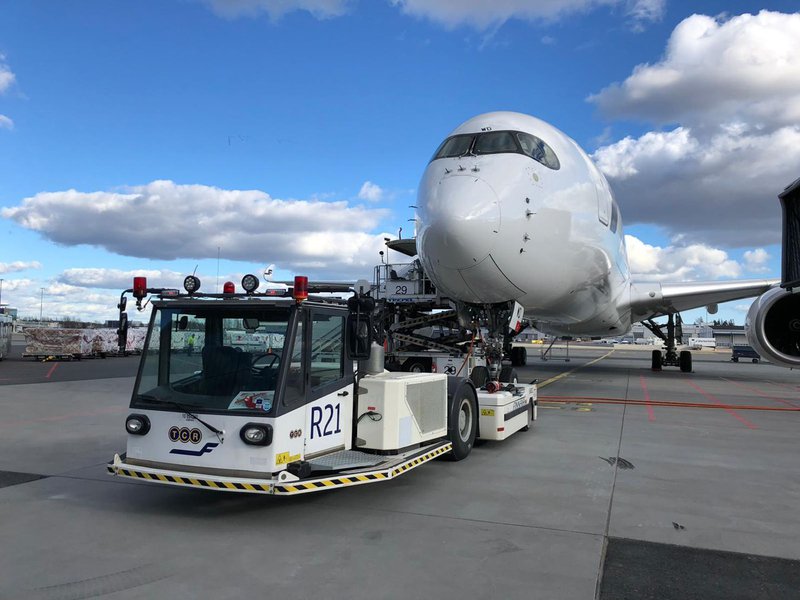Airside International
10/12/2021
Minimising GSE Total Cost of Ownership
Winter 2021

Known as total cost of ownership (TCO), it is a vital consideration – though only one of many – for those GSE operators thinking about acquiring GSE. The real price of any item of equipment can be measured most accurately in terms of the cost that it will represent over its working lifetime.
Explaining TCO benefits
For Brussels, Belgium-headquartered GSE supplier TCR, minimising TCO lies at the very heart of what it offers its customers, explains its head of commercial, Bruno Vanpoucke.
"It's what our business model reflects," he points out – full-service rentals that incorporate maintenance and support along with the lease, while keeping the cost of GSE off an operator's balance sheet.
While all TCR clients tend to have a fairly good grasp of the concept of TCO, many – especially new customers – do not fully track and therefore fully appreciate all aspects of it, Vanpoucke notes. "So, we try to help them with that," he says.
"We draw up business cases that fully account for all aspects of total cost of ownership, and especially the costs that accrue across an entire GSE fleet, rather than just in terms of an individual asset."
TCR is very good at identifying the TCO benefits of working with TCR across a GSE fleet in all manners of ways (in relation to acquisition costs, running costs, maintenance and repair, asset risk and so on), and putting that information across in readily understandable terms to a customer (or potential customer).
TCR buys equipment in volume and can then lease individual items according to every customer's needs, thus significantly minimising up-front costs for them. Since TCR owns an asset, the customer avoids the risk of having that asset on its balance sheet.
The company also offers a high degree of flexibility in meeting operators' needs through its highly customisable full-service packages, while the quality of preventative maintenance and repair services it provides as part of a package also means that there are no sudden and unexpected costs in this regard for an operator.
Like TLD, TCR is emphasising the value of electric GSE for many customers. In terms of TCO, TCR's leasing model for battery-powered GSE avoids the need for an operator to make the otherwise relatively large initial investment (compared to similar diesel units) in electric equipment, while it also reflects the lower maintenance costs of such units. The fact that the running costs for electric GSE are lower than for diesel equivalents (and the fuel they require) also means significant savings in through-life costs of course. TCR can even acquire operators' diesel equipment and replace these units with electric GSE as desired as part of a package. With the costs of electric GSE coming down (especially, as has already been pointed out, as lithium batteries especially become cheaper) and the residual value of electric units even after some years of use also now increasing , the attractiveness of battery-powered equipment is growing all the time, Vanpoucke suggests – and TCR is an expert in comparing the costs and benefits of diesel versus electric for its customers.
Need more info on TCO & looking into sustainable solutions?
Check out our video’s on Electrification & Telematics or contact us info@tcr-group.com


